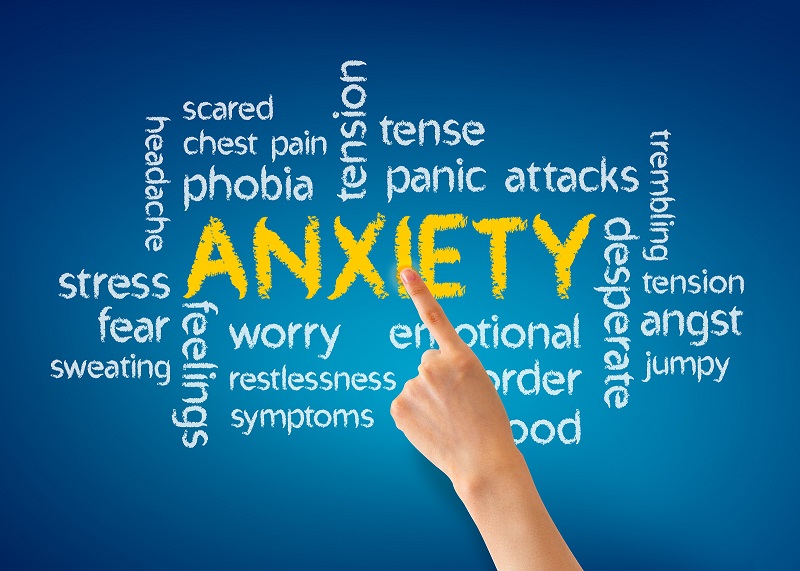How Do You Know If You Have Anxiety
Life can be filled with various stressors, and it’s entirely normal to experience feelings of worry or nervousness from time to time. However, when these feelings become overwhelming and start to interfere with your daily life, it may be an indication of anxiety. In this article, we will explore the common signs and symptoms of anxiety, as well as provide guidance on seeking help and finding effective coping strategies.
Recognizing the Signs of Anxiety
- Persistent Worry and Restlessness: Do you find yourself constantly worrying about future events, even when there is no immediate threat? Are you unable to relax and often feel restless?
- Physical Symptoms: Anxiety can manifest physically, leading to symptoms like rapid heartbeat, trembling, sweating, and muscle tension. These sensations can be alarming and contribute to feelings of unease.
- Difficulty Concentrating: An anxious mind can make it challenging to focus on tasks or maintain attention for extended periods. This can impact productivity and daily functioning.
- Sleep Disturbances: Insomnia or disrupted sleep patterns are common indicators of anxiety. Racing thoughts and heightened alertness can make it difficult to fall asleep or stay asleep.
- Avoidance Behavior: Individuals with anxiety may avoid situations or places that they associate with discomfort or fear. This avoidance can lead to limitations in daily activities and social interactions.
- Changes in Appetite: Some people may experience fluctuations in appetite, leading to either overeating or loss of appetite. These changes can impact nutritional balance and overall well-being.
- Irritability: Anxiety can heighten irritability and make it more challenging to navigate daily interactions. Small stressors may feel disproportionately overwhelming.
Understanding the Impact of Anxiety on Mental Health
Anxiety is not just a passing feeling of nervousness; it’s a complex mental health condition that can have a significant impact on your overall well-being. It’s important to recognize that seeking help for anxiety is a sign of strength, not weakness.
Taking Steps Towards Seeking Help
- Talk to Someone You Trust: Sharing your feelings with a trusted friend, family member, or colleague can be the first step towards seeking support. They can provide emotional support and may offer valuable perspective.
- Consult a Healthcare Professional: If you suspect you may have anxiety, consider scheduling an appointment with a healthcare provider or mental health professional. They can provide a proper diagnosis and recommend appropriate treatment options.
- Explore Therapy Options: Therapy, such as cognitive-behavioral therapy (CBT), can be highly effective in treating anxiety. It provides tools and techniques to manage symptoms and build resilience.
- Consider Medication: In some cases, medication may be recommended to help alleviate symptoms of anxiety. It’s important to consult a healthcare professional to discuss the potential benefits and risks.
- Practice Self-Care: Engaging in self-care activities, such as regular exercise, mindfulness, and maintaining a balanced diet, can significantly contribute to managing anxiety.
FAQs (Frequently Asked Questions)
Q: Can anxiety be cured completely?
A: While anxiety may not be completely cured, it can be effectively managed with appropriate treatment and coping strategies.
Q: Is it normal to have occasional bouts of anxiety?
A: Yes, it is normal to experience moments of anxiety. However, if these feelings become overwhelming and persistent, it may be indicative of an anxiety disorder.
Q: Can anxiety lead to physical health problems?
A: Yes, chronic anxiety can contribute to various physical health issues, including heart problems, digestive issues, and weakened immune function.
Q: Are there natural remedies for managing anxiety?
A: Yes, practices like deep breathing exercises, meditation, and regular physical activity can be effective in reducing anxiety symptoms.
Q: Can anxiety be a symptom of an underlying medical condition?
A: Yes, anxiety can sometimes be a symptom of an underlying medical condition. It’s important to consult a healthcare professional for a proper evaluation.
Conclusion
Recognizing and acknowledging anxiety is the first step towards finding relief and regaining control over your life. By understanding the signs, seeking support, and implementing effective coping strategies, you can navigate anxiety with resilience and strength.














